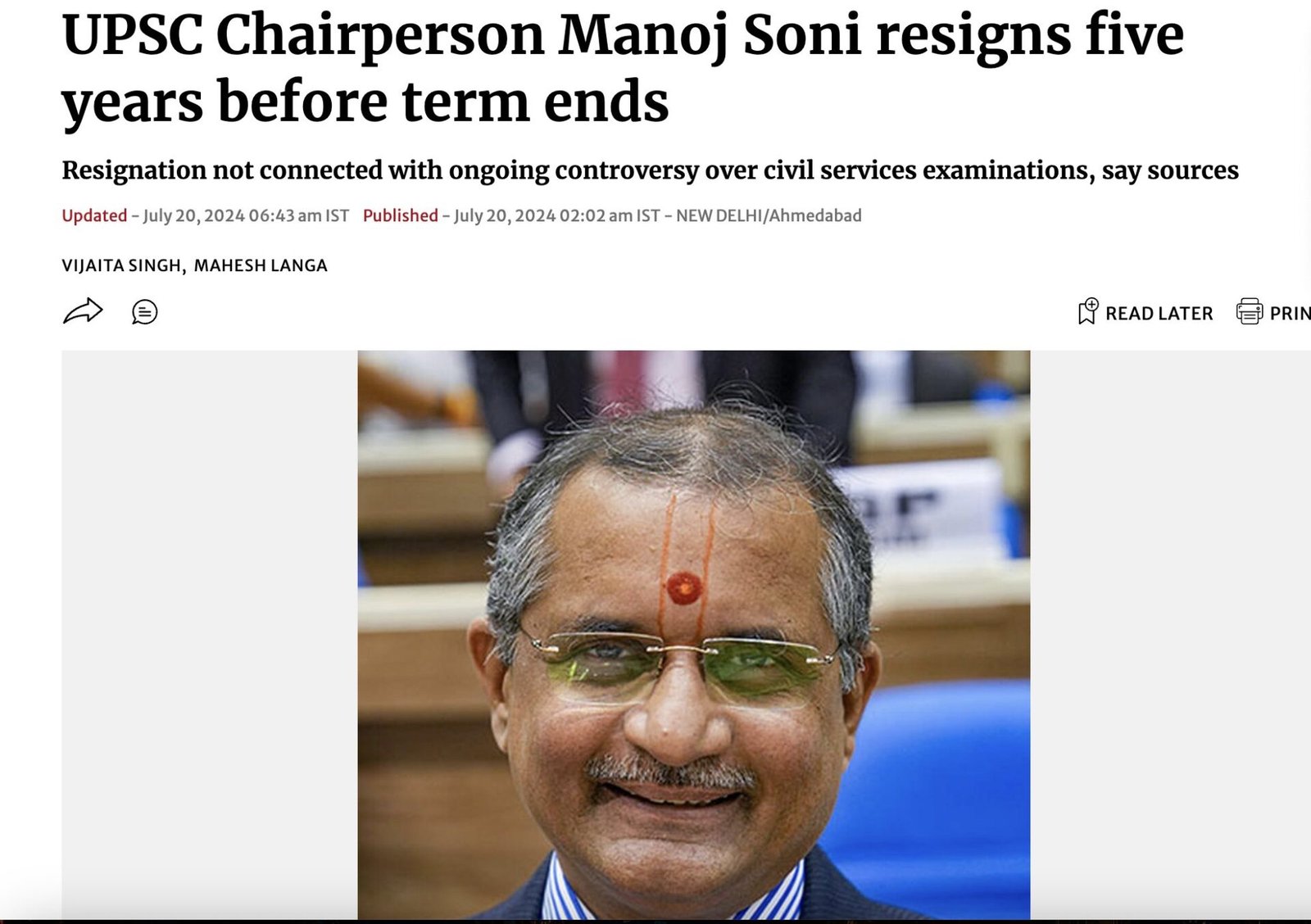UPSC Chairman Manoj Soni resigned : UPSC Chairman Manoj Soni has resigned citing personal reasons. His tenure was till May 2029. However, Manoj has said that his resignation is in no way connected to the controversies and allegations involving trainee IAS Pooja Khedkar.
UPSC Chairman Manoj Soni resigned, citing personal reasons . Manoj took over as a member of the commission on 28 June 2017. He will take oath as the chairman of UPSC on 16 May 2023.
His resignation comes five years before the end of his tenure, which was supposed to last until May 2029 . Official sources have clarified that his resignation is not related to any controversies or allegations surrounding the Union Public Service Commission.
Union Public Service Commission chairperson Manoj Soni has resigned due to “personal reasons,” almost five years before his tenure ends in 2029, sources told The Hindu. @vijaita and @LangaMahesh report.https://t.co/EmhW5KG4iR
— The Hindu (@the_hindu) July 20, 2024
How is the UPSC chairman selected?
The procedure of choosing the next chairman of the UPSC is methodical:
- Qualifications: The applicant should have a proven track record in academics, administration, or public service.
- The President of India receives a recommendation from the Prime Minister regarding a nominee.
- Approval: The suggestion is used by the President of India to select the new Chairman.
By going through this procedure, it is guaranteed that the Chairman has a great deal of experience and knowledge in public administration.
what are the main functions of UPSC Chairman?
A key component of the Union Public Service Commission’s operation is the chairman. The primary roles are as follows:
Leadership and Administration: The Chairman is in charge of the UPSC’s general operations and makes sure it runs smoothly.
Conduct of Examinations: Oversees the administration of different tests for hiring into central and all Indian services.
Participates in the creation of policies concerning hiring, advancement, and disciplinary actions.
Advisory Role: Provides guidance to the government on issues pertaining to personnel management, such as hiring policies and work schedules.
Making Decisions: Makes important choices regarding the selection procedure, guaranteeing impartiality and openness.
Representation: Keeps in touch with other governmental organisations and speaks on behalf of the UPSC in a variety of settings.
For more interesting update follow our official website.

